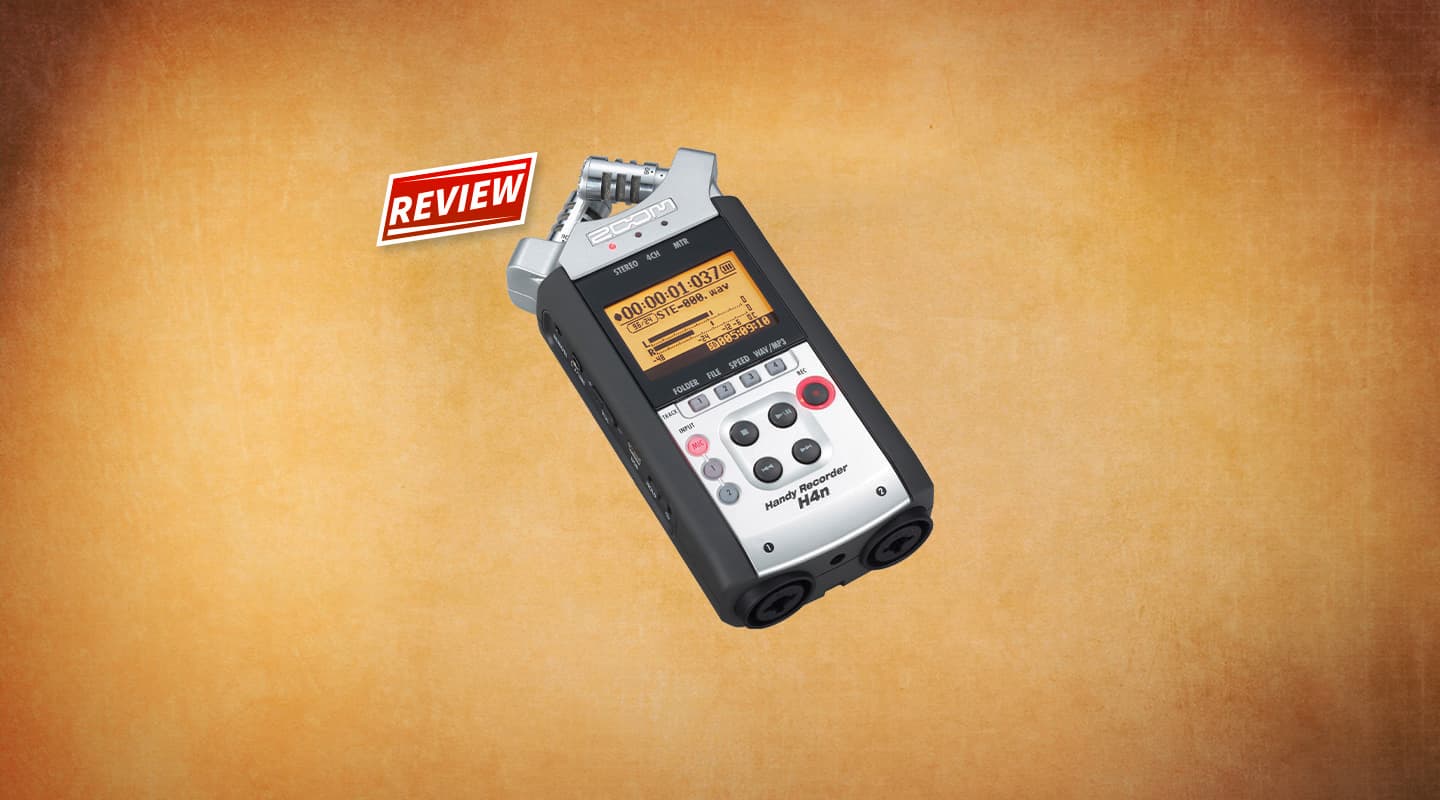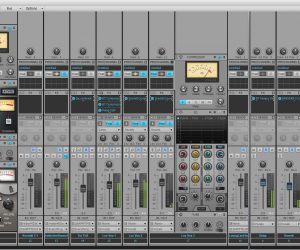
Review: Zoom H4N Handheld Recorder
Zoom updates the H4 with a better interface for discovering even more features.
The Zoom H4n is the n-ext instalment of the H4 hand-y portable recorder. The new version still has the ability to record at 24-bit/96k all the way down through a range of WAV and MP3 bit and sampling rates. On the outside, Zoom has done away with the lightweight plastic of the H4, replacing it with a rubberised finish and heavier body. Zoom has also gotten rid of the ‘roll cage’ that once protected the built-in stereo mics. This has been necessary to allow access to the microphone heads, which can now be rotated 180°, widening the stereo image from a standard 90° degrees to a super-wide 120° degrees. I found myself frequently switching between the two alternatives to hear which suited my purposes better, and at times was grateful for the extra ambience afforded by the 120° configuration.
‘N’ FOR NEW
Looking at the new interface, Zoom has done away with the single multi-function button for four separate play/pause, stop, skip-back and skip-forward controls – a definite improvement in my book.
The H4n also has a larger backlit LCD screen than its predecessor with easier to read text and layouts, making the Multitrack and Four-Channel modes much easier to navigate around.
Four-Channel mode is new to the H4n, the idea being that if there are four inputs – a built-in stereo mic and two combo XLR/1/4-inch jacks – why not use all of them simultaneously. To that end you now can, but just be aware that setting the gain is limited to stereo pairs, making it effectively a ‘dual-stereo’ device rather than a true four-track. You’ll especially notice this limitation if you’re trying to feed Inputs 1&2 with two mono mics. If, on the other hand, you’re feeding one of the tracks with a guitar, for example, you can obviously fine-tune the level going in to the H4n via the guitar’s volume control.
Whether you’re cursing this limitation or just overjoyed you have two extra tracks depends on how you ideally want to employ the H4n. And, let’s not forget, in the palm of your hand is multitrack recorder for under a grand. What’s more, with 50 onboard effects, compressors, preamp and amp simulators, the H4n has pretty much everything required to record ‘on-the-fly’ demos (at 16-bit/44.1k). And if four tracks aren’t enough, just bounce down and continue. Tracks can also be linked to stereo or summed to mono, meaning the stereo mic can serve as a vocal mic without taking up two tracks. After bouncing down, the Zoom can also normalise and encode the stereo file to MP3 – great for quickly posting demos or podcasts online.
The Zoom H4n now supports BWF-compatible time stamp and track marker functions for film sound recording, even letting you drop markers onto the tracks during the audio capture. It also sports a built-in reference speaker for checking that the recording has made it on to the SD or SDHC card.
OUT OF THE BOX
Of course, if mixing-in-the-box is too natty, and you want to mix in a bigger computer-sized box, then the Zoom H4n connects as either a storage device or audio interface via USB, at either 44.1 or 48k. The unit powers via USB and transfer rates are fast, eliminating the need for a card reader. Turning on the Monitor option gives direct monitoring with no latency, and there’s also a fully-featured tuner with a full complement of alternate guitar tunings, a handy metronome, selectable 10-point low-cut filter, Mid-Side summing, auto-record and a choice of phantom power (+24V or +48V). The list of accessories includes a windshield and a microphone shaft-shaped attachment that screws into the back of the unit and fits snugly into a microphone clip. A wired remote is optional. There’s also ‘Stamina Mode’ for doubling battery life from a pair of AA batteries, restricting recording to stereo 16-bit/44.1k and with fewer options.
The H4n’s preamp design has been improved, and still has moderately high levels of self-noise when recording sounds with a dynamic mic, but performed admirably with a condenser.
There are, as always, compromises with any handheld recorder attempting to pack in the full gamut of features. For example, with the Zoom, there are no presets or gain pots for instantaneous adjustment – gain on any channel of the H4n is set via up and down buttons on the side. This may prove a little fiddly if you’re someone who deals with news gathering (ENG) on a daily basis – the H4n interface is a big improvement on the hard-wired three-position switches for each input on the H4, but scrolling through recording levels isn’t as effective as turning a dial in those tight situations.
The features and functionality that Zoom has packed into a portable device like the H4n is extraordinary, all at a street price that’s well under $1000. Anyone interested or in the business of portable sound recording, especially song writers, will want to demo an H4n.
















RESPONSES